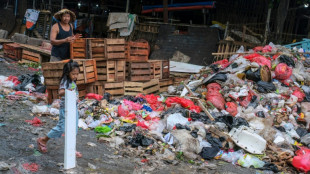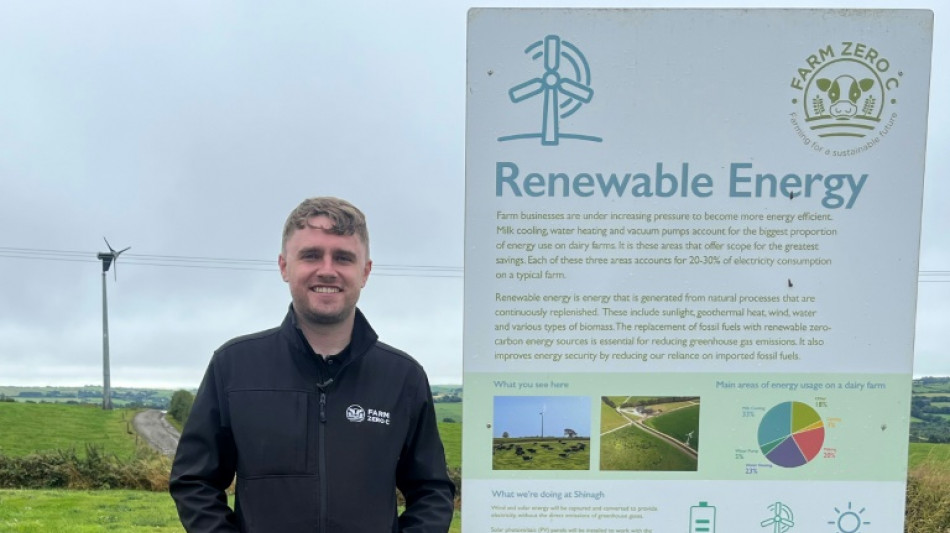
-
 Arteta tells faltering leaders Arsenal to harness Wolves 'pain' against Spurs
Arteta tells faltering leaders Arsenal to harness Wolves 'pain' against Spurs
-
Crowley gets nod for Irish as Prendergast drops out

-
 Unbeaten Swiss to meet Great Britain in Olympic men's curling semis
Unbeaten Swiss to meet Great Britain in Olympic men's curling semis
-
UK police arrest ex-prince Andrew on suspicion of misconduct

-
 Oil extends gains on US-Iran tensions, Europe stocks slide
Oil extends gains on US-Iran tensions, Europe stocks slide
-
Former prince Andrew, a historic downfall

-
 Sri Lanka post 178-7 against Zimbabwe ahead of T20 Super Eights
Sri Lanka post 178-7 against Zimbabwe ahead of T20 Super Eights
-
OpenAI's Altman tells leaders regulation 'urgently' needed
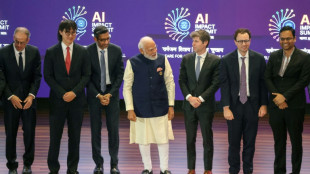
-
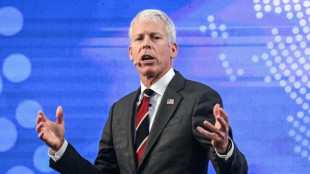 US renews threat to leave IEA
US renews threat to leave IEA
-
Liverpool boss Slot says Isak in 'final stages of rehab'

-
 Airbus ready to build two new European fighter jets if 'customers' ask
Airbus ready to build two new European fighter jets if 'customers' ask
-
UN Sudan probe finds 'hallmarks of genocide' in El-Fasher
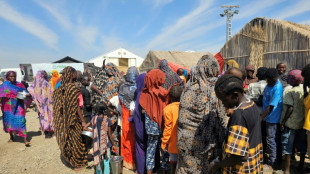
-
 Costelow starts, Hamer-Webb makes Wales debut in Six Nations clash with Scotland
Costelow starts, Hamer-Webb makes Wales debut in Six Nations clash with Scotland
-
Facing US warnings, Iran defends right to nuclear enrichment
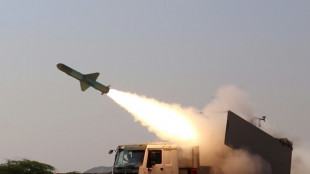
-
 Ex-South Korea leader Yoon gets life in prison for insurrection
Ex-South Korea leader Yoon gets life in prison for insurrection
-
OpenAI's Altman says at India summit regulation 'urgently' needed
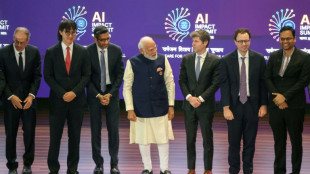
-
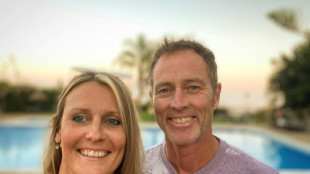 British couple held in Iran sentenced to 10 years
British couple held in Iran sentenced to 10 years
-
West Indies ease past Italy to tune up for T20 Super Eights

-
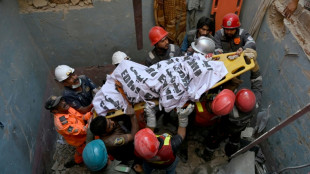 At least 16 killed after building collapses in Pakistan following blast
At least 16 killed after building collapses in Pakistan following blast
-
Summit photo op fails to unite AI startup rivals
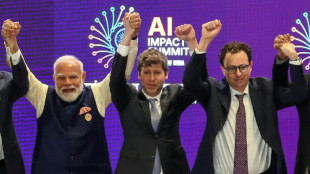
-
 OpenAI's Altman says world 'urgently' needs AI regulation
OpenAI's Altman says world 'urgently' needs AI regulation
-
Horror comics boom in our age of anxiety

-
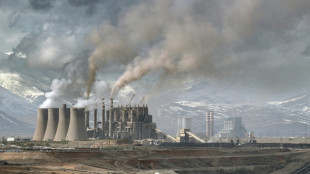 Turkey fires up coal pollution even as it hosts COP31
Turkey fires up coal pollution even as it hosts COP31
-
London fashion week opens with tribute to one of its greats

-
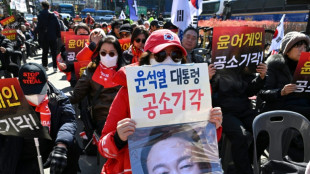 Ex-S.Korea leader Yoon gets life in prison for insurrection
Ex-S.Korea leader Yoon gets life in prison for insurrection
-
Pea soup, veggie mash contest warms up Dutch winter
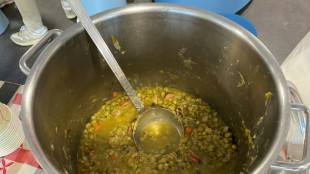
-
 South Korea's Yoon: from rising star to jailed ex-president
South Korea's Yoon: from rising star to jailed ex-president
-
Private companies seek to import fuel amid Cuban energy crisis
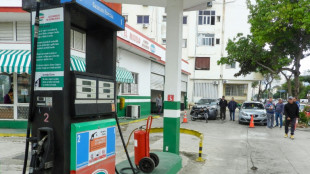
-
 India search for 'perfect game' as South Africa loom in Super Eights
India search for 'perfect game' as South Africa loom in Super Eights
-
India's Modi calls for inclusive tech at AI summit
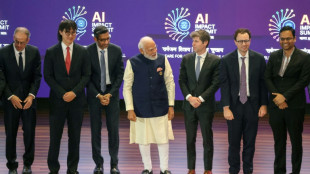
-
 Airbus planning record commercial aircraft deliveries in 2026
Airbus planning record commercial aircraft deliveries in 2026
-
Elections under fire: Colombia endures deadliest campaign in decades
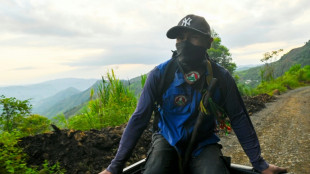
-
 Traore backs 'hungry' Italy against France in Six Nations
Traore backs 'hungry' Italy against France in Six Nations
-
All-rounder Curran brings stuttering England to life at the death

-
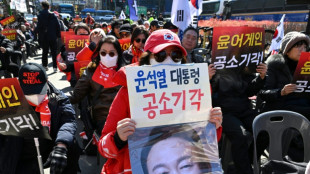 South Korea court weighs death sentence for ex-president Yoon
South Korea court weighs death sentence for ex-president Yoon
-
Tech chiefs address India AI summit as Gates cancels

-
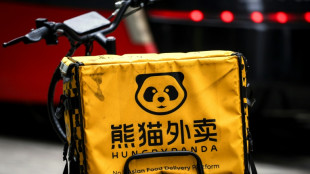 Australia rejects foreign threats after claim of China interference
Australia rejects foreign threats after claim of China interference
-
Somali militias terrorise locals after driving out Al-Qaeda

-
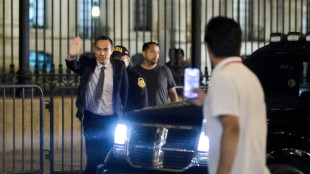 Peru picks Balcazar as interim president, eighth leader in a decade
Peru picks Balcazar as interim president, eighth leader in a decade
-
Australian defence firm helps Ukraine zap Russian drones

-
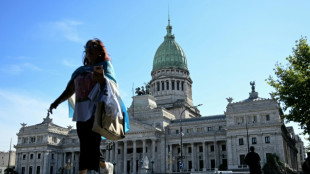 General strike to protest Milei's labor reforms starts in Argentina
General strike to protest Milei's labor reforms starts in Argentina
-
Cuban opposition figure Ferrer supports Maduro-like US operation for Cuba
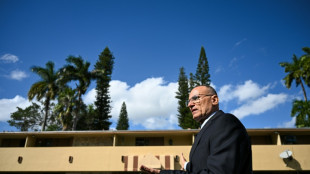
-
 High-stakes showdown in Nepal's post-uprising polls
High-stakes showdown in Nepal's post-uprising polls
-
Asian markets rally after Wall St tech-led gains
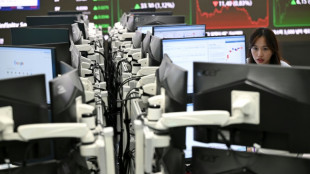
-
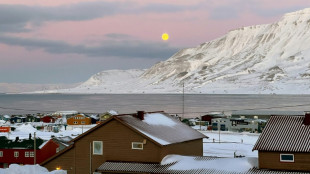 After Greenland, Arctic island Svalbard wary of great powers
After Greenland, Arctic island Svalbard wary of great powers
-
Veteran Slipper set for new Super Rugby landmark

-
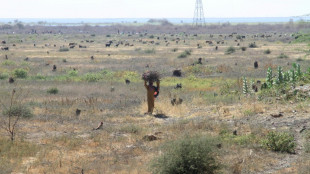 Sudan's historic acacia forest devastated as war fuels logging
Sudan's historic acacia forest devastated as war fuels logging
-
Deadly Indonesia floods force a deforestation reckoning

-
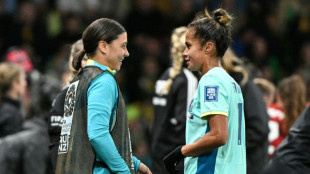 Australia vow to entertain in bid for Women's Asian Cup glory
Australia vow to entertain in bid for Women's Asian Cup glory
-
Afghan barbers under pressure as morality police take on short beards


Ireland's climate battle is being fought in its fields
On a windswept Irish farm, high-tech cow collars track animal health and solar panels glint on the milking parlour's roof, as a country famed for its lush green pastures tries to reduce its agricultural carbon footprint.
The Farm Zero C project near Bandon, County Cork, also manages grazing carefully, uses hedgerow and scrub habitats to shelter pollinators and birds, and plants legume crops to cut chemical fertiliser use, all producing measurable reductions in greenhouse gas emissions.
Around 40 percent of Ireland's total greenhouse gas emissions come from agriculture, far higher than the European Union average.
The unique Bandon initiative in the country's south could provide a model for tackling Ireland's biggest environmental dilemma: how to cut emissions on farms without drastically shrinking herds or decimating rural communities.
Ireland's pastures, long symbols of national identity and prosperity, have become flashpoints in the debate over how a small island can meet big climate promises.
Dominated by methane-heavy dairy and beef production from a seven-million-strong cattle herd, the sector produces more emissions than transport and energy combined.
"We are trying to create an economically viable climate-neutral system," said Padraig Walsh, project manager at Farm Zero C, where 250 cows are milked.
The project is a collaboration between Carbery, a dairy cooperative of more than 1,100 farmers, and "bioeconomy" researchers BiOrbic.
At the site, around 280 kilometres (175 miles) southwest of Dublin, emissions have plunged by 27 percent since the project was launched in 2021, Walsh told AFP.
Chief emission culprits are livestock farming, particularly cattle, which release planet-warming methane when they burp.
Meanwhile, fertiliser use emits nitrous oxide -- the third-most-potent greenhouse gas after methane and carbon dioxide.
- 'Farmers villainised' -
As the annual United Nations climate conference, COP30, begins in Brazil, EU 2030 targets are forcing Irish policymakers to focus on slashing emissions by 40 percent compared to 2005 levels.
If Ireland fails, it risks colossal EU fines of almost 30 billion euros ($35 billion).
At Farm Zero C -- on a site owned by the farmers' cooperative -- the target is to reach emissions neutrality.
Legume hordes like clover pull nitrogen from the air, reducing the use of chemical fertilisers, and the milking parlour is 80-percent solar- and wind-powered.
But methane still represents about three-quarters of the farm's carbon footprint, according to Walsh.
"We are looking at herd genetics, researching feed additives with our academic partners, and trialling natural diet products to reduce methane from the cows," he said.
The farm also collects quantifiable data for soil carbon sequestration.
Other farmers, researchers and policymakers regularly visit to study techniques.
Not all its measures will be picked up, but "we recommend farmers giving one or two things a go on their own farms," said Walsh.
"Farmers feel a bit villainised but have already done a lot to try to reduce emissions at their own cost. They need more help," he added.
Farms contribute greatly to rural communities and economies in Ireland, Walsh insisted.
"Around here they are all family-run businesses, and all under pressure."
- 'Climate change front line' -
Shifting attitudes in rural communities, where farming is a mainstay of life, poses a challenge.
At Ireland's annual National Ploughing Championships in County Offaly, Mary Garvey, a 47-year-old farmer from Roscommon, told AFP: "It has to be economically sustainable to farm environmentally."
The event displays age-old ways of farming and draws hundreds of thousands of visitors each year.
"Older farmers spent half their lives trying to make their land more fertile for cattle, and now are told to undo all that," Garvey said.
According to the author John Gibbons, powerful agribusiness lobbyists and government policy are the chief climate villains.
The country's dairy sector, expanded after EU milk quotas were lifted in 2015, was boosted by government incentives, leading to a leap in emissions.
Even with technological progress, emissions will not drop significantly unless herd sizes do and there is a society-wide pivot to a plant-based food system, argued Gibbons.
"Ultimately, we need a more diversified agricultural model, with fewer cattle, and more horticulture, organics and tillage," he told AFP.
Many farmers "recognise that they're on the climate change front line," said Peter Thorne of Maynooth University, lead author on a report for the Intergovernmental Panel on Climate Change (IPCC), the UN's climate science body.
"They feel it firsthand but need the help of government and markets to diversify," he told AFP.
"There is no point professors preaching from on high. We need farmers themselves to show others that this does not necessarily mean a drop in income."
Y.Kobayashi--AMWN


